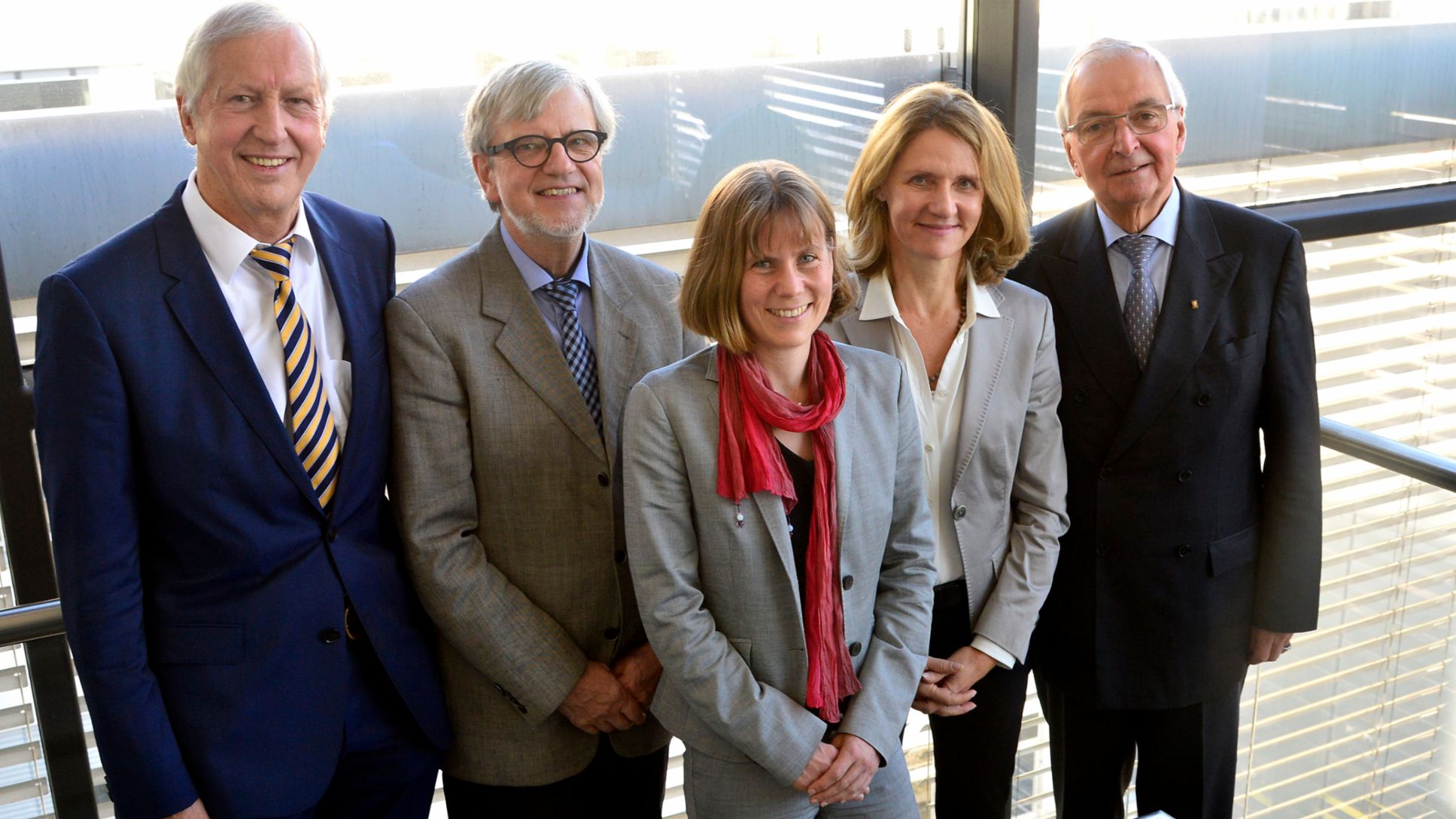The Porsche Sustainability Council has prepared a position paper in response to the fundamental challenges that the automotive sector and global industry are experiencing as a result of the global spread of Covid-19. The five renowned experts from the worlds of business, politics and civil society have put together six points to sum up their stance on the measures and possible consequences of coronavirus.
- The council welcomes the commitment of the Porsche Executive Board and workforce. Large donations, diverse fundraising activities or the provision of expertise, such as in procurement of necessary medical materials, help to ensure that as many of those suffering from the virus as possible get the best available care. What is more, these measures send an important message to society and promote a positive community spirit. Porsche’s commitment to society goes beyond what is normal and expected and sets an example for holistic corporate sustainability management.
- During the current times, a close alliance between business and politics is more important than ever before. Porsche is working closely with the governments in Baden-Württemberg and Saxony, the home states of its production sites. After all, protecting jobs is the number one priority at the moment. The swift resumption of production and the protection of jobs must be and must remain the goal of an economic and social sustainability policy. The coronavirus crisis will fundamentally change the world in the long-term. There is a period of crisis ahead for the economy. Its effects will call for global solidarity between the state, business and society. As a globally active company, Porsche will have to step up to this responsibility. Any economic transformations must therefore be detected at an early stage and seized and shaped as an opportunity for new markets and products.
- It is important to beat the virus as quickly as possible, limit the direct damage during the pandemic crisis, and focus on the social side of sustainability. In addition to the social and economic aspects, however, it is important not to lose sight of ecological, forward-looking behaviour when it is time for politicians and businesses to start “ramping up” economic output again. Looking for short-term gains on the one hand and neglecting long-term environmental costs on the other would be a mistake. Not least because the aftermath of the 2008 financial crisis set climate policy back several years. In view of the latest IPCC reports, our planet will not be able to withstand this a second time. Climate protection must remain a guiding principle for corporate conduct. An economy that is centred around ecological balance and social equality is more resilient. A fair society generates trust and a feeling of assurance.
- Global supply chains are currently in the midst of a tremendous stress test. We have to rethink them without putting the positive aspects of globalisation at risk. The spotlight once again has to be on flexibility and resilience; structures and processes that are geared towards efficiency should be examined critically.
- The effects that coronavirus will have on mobility and the way we work are not yet clear. However, we need to rethink mobility. Will we see another rise in individual mobility? If so, what form will it take? Will there be less focus on public transport after the crisis? What solutions can the automotive industry, politicians and society create by working together? At the same time, the vision of smart cities that offer a good quality of life will become more important now that people have directly experienced what life is like with less traffic, less mobility – but also a lack of social dialogue.
- The individual is more important than ever before, not least because the pandemic has made many people feel uncertain and because negative consequences – either direct or indirect – are expected for many lives. Climate change and the processes associated with it, such as the extinction of species and rising sea levels, also have a direct impact on peoples’ lives. Before, during and after coronavirus. It is important to keep on pushing forwards with decarbonisation, even after the crisis, and make sure we do not fall behind the status quo.
Made up of five experts, the Porsche Sustainability Council was set up in November 2016 to provide advice and to serve as an initiating body for economic, ecological and social issues. The committee is made up Prof. Dr. Lucia Reisch, Prof. Dr. Sonja Peterson, Prof. Dr. Maximilian Gege, Prof. Dr. Dr. h.c. Ortwin Renn and Prof. Dr. Dr. h.c. Klaus Töpfer. Prof. Dr. Lucia Reisch is the spokesperson of the council. The renowned experts from the worlds of business, politics and civil society act independently, are not bound to instructions, and hold extensive rights to information, consultation rights and powers of initiative. The members of the Sustainability Council meet the Porsche AG Executive Board at least twice a year and also exchange information with members of senior management. The council is on hand to provide the company with advice and issues recommendations on the steps it deems necessary for Porsche to become the most sustainable brand for exclusive, sporty mobility.


